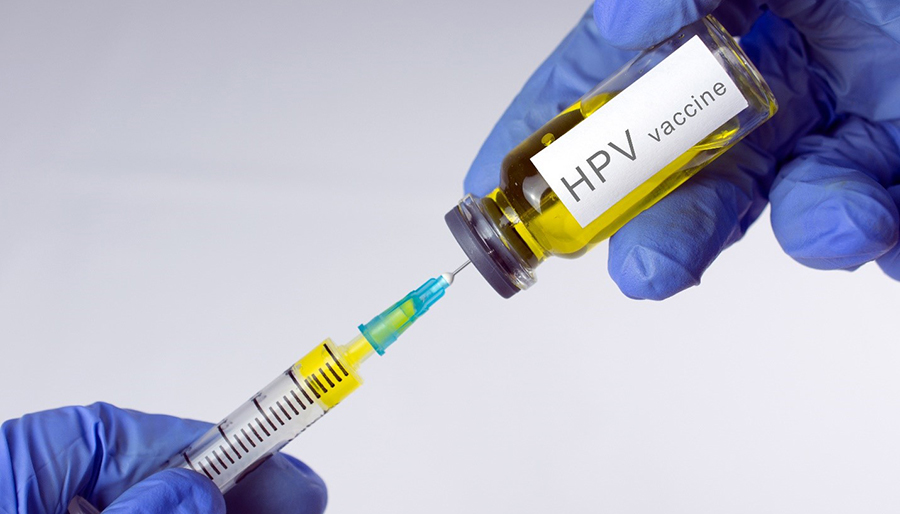HPV Vaccine Gets Expanded Approval from FDA
The U.S. Food and Drug Administration (FDA) recently approved Gardasil 9, a human papilloma virus (HPV) vaccine, for adults aged 27 to 45. The move could help further spell the end of one of the main causes of a host of communicable cancers.
Already approved for patients aged 9 to 26, the vaccine is the culmination of years of dedication on the parts of Douglas R. Lowy, M.D., and John T. Schiller, Ph.D., two National Cancer Institute luminaries whose tremendous cancer prevention science contributions earned them the National Foundation for Cancer Research’s 2018 Szent-Györgyi Prize for Progress in Cancer Research.
“(This expanded) approval represents an important opportunity to help prevent HPV-related diseases and cancers in a broader age range,” said Peter Marks, M.D., Ph.D., director of the FDA’s Center for Biologics Evaluation and Research. “The Centers for Disease Control and Prevention has stated that HPV vaccination prior to becoming infected with the HPV types covered by the vaccine has the potential to prevent more than 90% of these cancers, or 31,200 cases every year, from ever developing.”
“HPV is responsible for more than 275,000 deaths per year,” says Lowy. “The vaccine has the potential to drastically reduce that number.”
As with most cancers, HPV-related cancer is anything but a straightforward disease. There are more than 100 types of HPV, of which at least 13 are cancer-causing. While HPV is mostly linked to cervical cancer, the virus too causes approximately 95% of anal cancers, 70% of oropharyngeal cancers, 65% of vaginal cancers, 50% of vulvar cancers and 35% of penile cancers. Indeed, high-risk HPV types cause approximately 5% of all cancers worldwide.
“Doctors Lowy and Schiller’s work has likely already prevented hundreds of thousands of deaths due to cervical cancer, and this is just the beginning,” said Michael N. Hall, Ph.D., professor of biochemistry at the Biozentrum of the University of Basel, Switzerland, and winner of the 2017 Szent-Györgyi Prize and chair of the 2018 selection committee. “They are true heroes in the fight against cancer.”
The vaccine works on a simple premise: Fool the body’s immune system into thinking there is an infection when, in fact, there is none. Gardasil 9, manufactured by Merck, targets the HPV L1 major capsid protein, which can assemble to form virus-like particles morphologically resembling native virions, to generate an immune response strong enough to overwhelm HPV. Interestingly enough, HPV LI is not part of the virus itself, but rather forms the shell surrounding the virus. Nevertheless, it provides the correct immunological response that is able to prevent an HPV infection, and the changes that ultimately lead to cancer from it. The latest version of Gardasil protects against nine strains of HPV, four more than the original.
According to the CDC, HPV infections, spread through sexual contact, are relatively common. Nearly all men and women will get at least one type of HPV at some point in their lives, and most people neither develop symptoms nor cancer. That being said, nearly 80 million Americans are currently infected with some type of HPV, and about 14 million people in the U.S. are infected each year. Most infections clear up on their own without the patients even knowing they were infected—a trait that leads to HPV’s swift spread in a population.
References:
- Food and Drug Administration. (2018). “FDA approves expanded use of Gardasil 9 to include individuals 27 through 45 years old”. Retrieved from: https://www.fda.gov/NewsEvents/Newsroom/PressAnnouncements/ucm622715.htm
- Gillenwater, Bradley. (2018). “Achievement in Cancer Prevention”. Retrieved from:https://www.nfcr.org/blog/evening-honoring-tremendous-achievement-cancer-prevention/
- Johnson, Linda. (2018). “FDA expands use of an HPV vaccine up to age 45”. Retrieved from: https://www.statnews.com/2018/10/06/fda-expands-hpv-vaccine-use-to-age-45/
- LaMotte, Sandee. (2018). “FDA approves use of HPV vaccine for adults 27 to 45”. Retrieved from: https://us.cnn.com/2018/10/05/health/gardasil-hpv-vaccine-approved-older-ages-bn/index.html
- Perry, David. (2018). “Szent-Györgyi Prize Winner Profile Series: Douglas Lowy & John Schiller: An Ounce of Prevention”. Retrieved from: https://www.nfcr.org/blog/blogdouglas-lowy-john-schiller-an-ounce-of-prevention/












